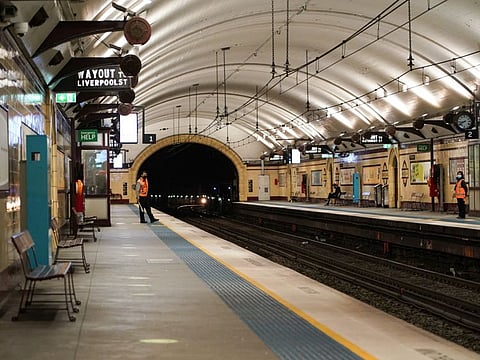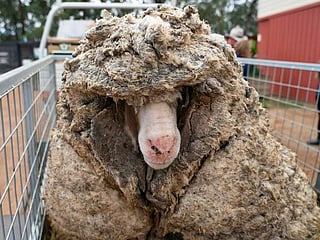Australia races to stem delta variant as new cases emerge
Sydney and Darwin go into lockdown, other major cities put on high alert

Also In This Package
Sydney: Australian authorities are racing to contain outbreaks of the highly contagious delta strain that have forced Sydney and Darwin into lockdown and put other major cities on high alert.
The outbreak in Sydney now numbers about 130 cases, with 18 more infections announced by New South Wales state on Monday. Contact tracers are battling to keep up with a growing list of exposure sites, including some domestic Virgin Australia flights after a cabin crew member tested positive for the virus.
Residents of Greater Sydney have been ordered to stay home except for exercise, essential shopping and medical treatment until July 9, while Darwin, the capital of the Northern Territory, on Monday saw its initial 48-hour lockdown extended until Friday. Queensland state on Sunday imposed additional restrictions, while Perth and Canberra have made mask-wearing mandatory in public for the first time since the pandemic began.
The clusters show the limits of Australia’s so-called “Covid-zero” strategy, which has relied on closed international borders and rigorous testing to eliminate community transmission of the virus. While nations such as the UK and US are preparing to open up their economies after widespread vaccinations, a slow rollout in Australia means the economy, and particularly domestic tourism, remains vulnerable.
Largest outbreak in Sydney
* Australia has been broadly successful in containing virus clusters, but is now battling flare-ups in at least four cities across the vast continent nation. * Brisbane, Darwin, Perth and Sydney have all reported new cases of the highly contagious Delta variant, which first emerged in India and has spread in Australia after escaping from hotels used to quarantine returning travellers. * The largest outbreak is in Sydney, where 130 people have tested positive for Covid-19 since a driver for an international flight crew was diagnosed in mid-June, with the city’s residents now under stay-at-home orders for two weeks. * A 48-hour lockdown of Darwin and surrounding areas - due to end Tuesday - was extended to Friday after a cluster linked to an outback gold mine grew to seven cases.
“The threat that the delta strain could meaningfully spread to other states as well means that there is significant downside risk to our forecast that the Australian economy is going to perform really strongly this year,” said Katrina Ell, an economist at Moody’s Analytics Inc. in Sydney. “Until the vaccine really speeds up, the Australian economy is going to be really vulnerable to a fit and start recovery mode as we continue to see these localised outbreaks.”
Doses administered so far in Australia are only enough to cover 14% of the population, compared with 51% in the US and 58% in the UK, according to Bloomberg’s Covid-19 Vaccine Tracker.
In response to the clusters emerging around Australia, states and territories are reimposing domestic border restrictions, while a quarantine-free travel bubble between Australia and New Zealand has been suspended.
Tourism operators are warning the localised lockdowns are playing havoc with their industry, while the Australian Retailers Association says the Sydney lockdown is expected to cause lost trade totaling about A$1 billion ($759 million) a week.
The Northern Territory’s cluster is linked to a worker at a Newmont Corp. gold mine in the Tanami Desert in central Australia, placing hundreds of employees in isolation and raising fears the virus could leak into the vulnerable indigenous population.
The Sydney outbreak likely started with a driver who was infected while transporting international flight crews.
South Australia introduced new restrictions in response to the spreading delta variant outbreak. The restrictions are mild compared to those across Sydney and Darwin but “we have to be very vigilant at the moment,” South Australian Premier Steven Marshall said in a press conference Monday.
Prime Minister Scott Morrison’s government is under pressure to ramp up vaccine delivery, a program that’s been complicated by community concern about blood clots from the AstraZeneca Plc shot. The government is recommending that vaccine only be given to people aged over 60.
Along with the tardy vaccine rollout, Morrison has also been criticized by the main opposition Labor party for a policy of quarantining returned overseas travelers in city-center hotels. The virus has leaked into communities about 20 times via infected hotel security guards and cleaners, or travelers who caught the virus during quarantine, potentially due to poor room ventilation, and only tested positive after their release.
A Newspoll published in the Australian Monday showed Morrison’s conservative coalition slipping 2 percentage points to trail Labor, 49% to 51%. An election needs to be held by May.








